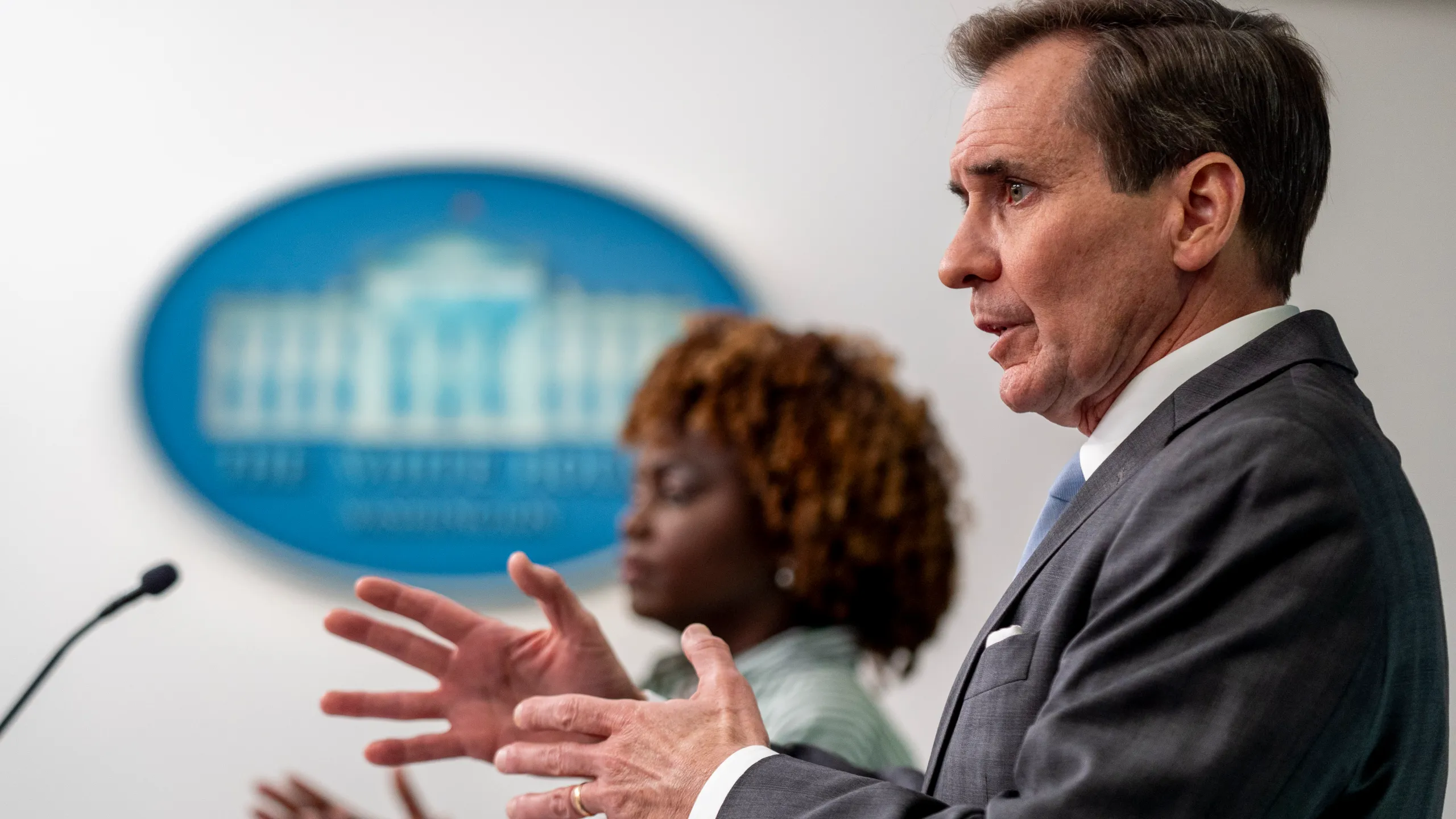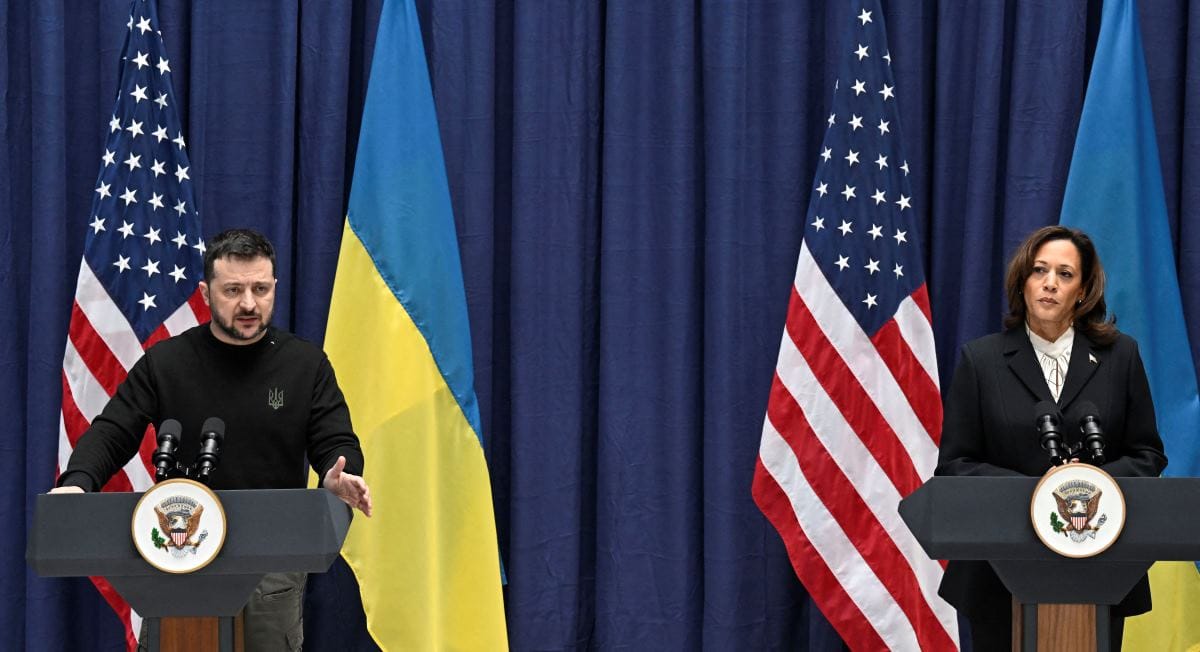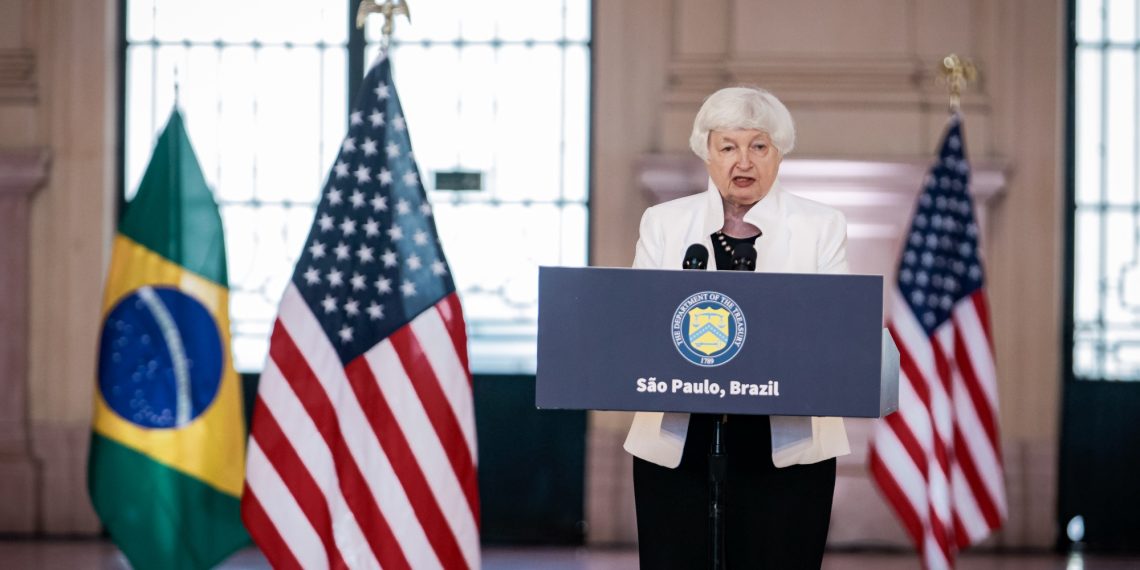Amidst failed negotiations to aid Ukraine’s war effort, U.S. Treasury Secretary Janet Yellen affirmed that the United States and its allies are exploring avenues to access $300 billion in frozen Russian sovereign assets.

In an interview with Reuters on Thursday, Yellen emphasized the necessity for a robust legal rationale, a point of contention during discussions at the Group of 20 (G20) finance ministers’ meeting in Brazil.
Yellen’s challenge to French Finance Minister Bruno Le Maire to devise options aligning with Group of Seven (G7) leaders’ objectives underscores the urgency to address the longstanding debate over Russian assets. The disagreement over asset monetization surfaced publicly, revealing deep divisions among G7 allies.
While Russia has threatened severe retaliation if its assets are seized, Yellen remains optimistic about potential options. She mentioned leveraging the assets as collateral for loans and a novel proposal for a syndicated loan as viable alternatives. Yellen stressed the need for a robust international legal rationale, acknowledging the complexity of legal considerations.
G7 leaders have tasked their staff with exploring various options and evaluating associated benefits and costs. However, the ultimate decision rests with the leaders, with uncertainties looming over a conclusive decision at the June summit in Italy.

Yellen emphasized the importance of safeguarding the operations of the Belgian clearing house Euroclear, which holds the majority of Russian assets. She reiterated her confidence in the “countermeasures” legal theory as a viable approach, endorsed by numerous experts.
Despite consensus among G7 governments on the urgency to aid Ukraine, differences persist in the proposed approaches. While Le Maire advocates for a more modest approach centered on the European Union’s initiatives, Washington leans towards more significant action, given the severity of Russia’s invasion.
With $61 billion in U.S. aid to Ukraine blocked by the Republican-led House of Representatives, the urgency to find alternative avenues to support Ukraine’s war effort intensifies.





